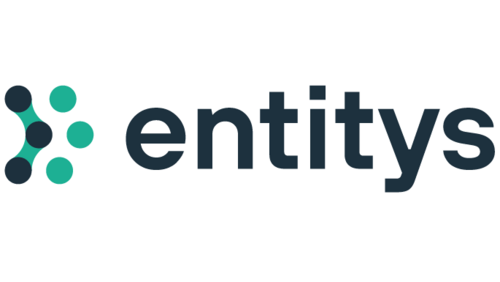
Interview: 5 questions for Simon Manz from entitys
Since February 2022, IFCC is now entitys. entitys is the result of a combination of many years of industry experience in data and product information management and corporate development know-how from top tier strategy consulting. We ask Simon Manz, Managing Director of entitys, our questions.

Question: Why "entitys"? Isn't that a grammatical error? ;-)
[laughs] We were looking for a name that describes what we do; that is, working with entities - hence entity - and the wide range of support we offer from our own PIM software solution to operational services - hence adding the "s". On top of that, we wanted a unique name that also clearly communicates our latest developments.
Question: IFCC was a long-time partner and service provider of the ECLASS e.V. - what changes now with the new name?
Nothing in the cooperation with ECLASS. We are still a passionate supporter of ECLASS and all the added values that ECLASS brings to our customers, but above all within the mutual interaction of our customers. The only change is that our range of services has become even broader. In the past, we supported companies in a consulting capacity during their implementation of ECLASS, as well as operationally in the classification of products, but now we are also giving them the opportunity to take their master data quality into their own hands with the help of our cloud-based Software-as-a-Service application. In addition to a fully-fledged PIM system, we also offer them machine learning assistants and many other tools to reduce internal costs. As a result, our customers not only save time, but become ECLASS professionals themselves.
Question: Are your services as ECLASS Service Provider optimized for certain industries or are they of particular interest?
Our PIM solution can be used in all industries and for all entities, with our name we take this into account. In terms of services, we have worked on almost all industries in our projects, a slight focus can be seen in the segments 19, 23, 27, 34, 37, 40. Our actual focus, however, is now on the processing, classification and exchange of large data sets with several hundred thousand items - irrespective of the industry. For this purpose, we have developed our own machine-learning tools that incorporate our experience of the last 15 years and more and thus support our customers in processing items with high quality and very short turnaround times.
Question: How do ECLASS users benefit from the VTH eData-Pool?
The VTH eData-Pool is a gateway for product master data in the industrial goods sector and thus promotes close cooperation between manufacturers and distributors on the one hand and reduces effort on both sides on the other. To this end, we have deliberately chosen ECLASS as the leading product data standard. ECLASS users can thus access product master data that can be seamlessly integrated into their ECLASS-based systems and workflows. Lengthy mappings and manual data adjustments are thus a matter of the past.
Question: How do you explain to friends from another professional environment what a product data standard is?
My favorite example are the comparison tables of online stores. Without a product data standard, there would be no comparable description of products and purchasing decisions would be very tedious and frustrating due to time-consuming research. This describes on one side the function, but also the added value of product data standards.
We thank Simon Manz for the friendly interview!
Plus de Actualités
Sensitive language and its use in the ECLASS Standard
Over the last years we are continuously witnessing a movement toward using a more sensitive and inclusive language. This matter is of high significance because of the power language can have in shaping minds, thoughts and the world we live in.
Der Weg zu guten Spend-Analysen war nie einfacher!
Heutige Spend-Analysen sind nicht ausreichend. Jedes Unternehmen kennt seine totalen Ausgaben, aber nur wenige inhaltliche Details. Ein Großteil der Ausgaben unterliegt nicht der Kontrolle des Einkaufs, was zu ungenutzten Einsparpotenzialen führt. Aber mit einer geeigneten Warengruppenzuordnung muss das nicht so sein.